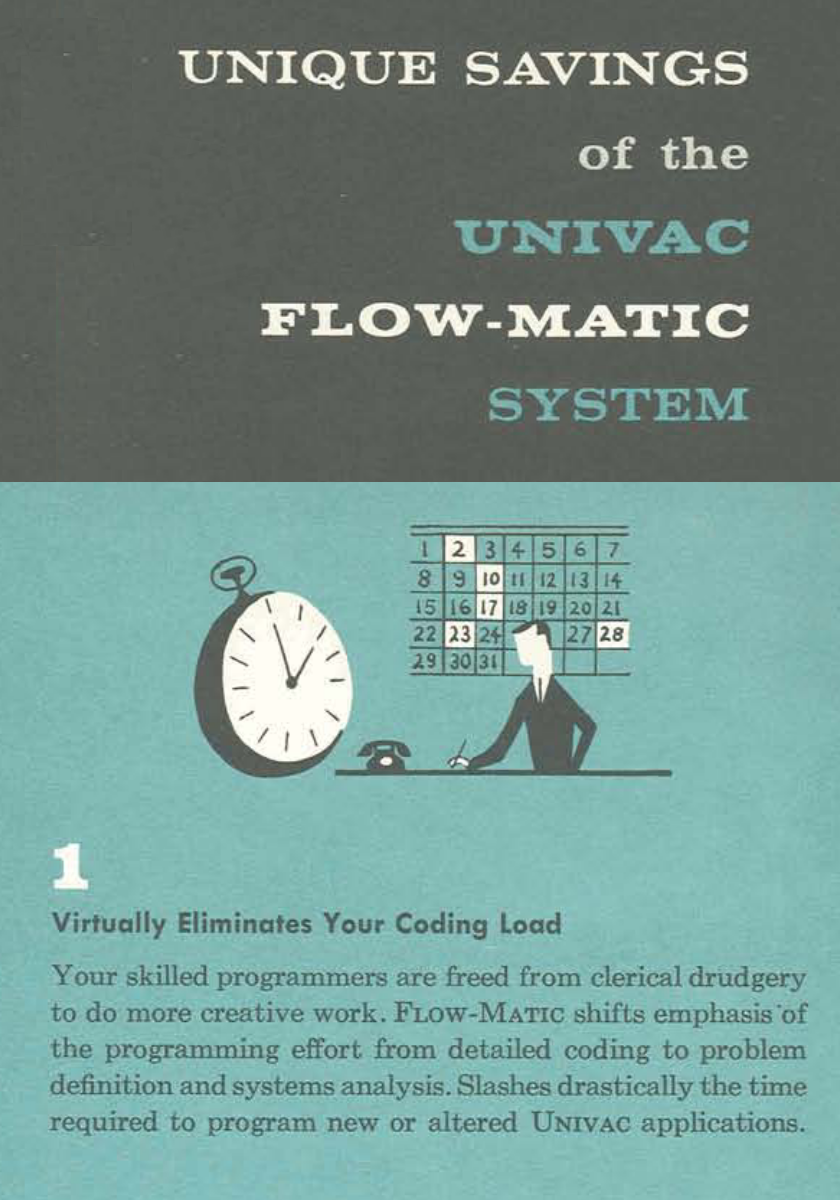No-code, no thought? Substrates for simple programming for all

Figure 1. Virtually eliminates your coding load. FLOW-MATIC promotional brochure (1957)
No-code is a hot new topic for programming startups. The idea is to develop a system that allows end-users to do the programming they need without the difficult task of writing code. There are no-code systems for building mobile apps, analysing data and many more.
It is perhaps not a surprise that "eliminating programming load" is not as new idea as some people may think and there is an excellent blog series on no-code history by Instadeq, going back to 1959.
Funnily enough, the 1957 promotional brochure about FLOW-MATIC, a predecessor to COBOL created by Grace Hopper, uses almost the same language that you will find in startup pitch decks today (Figure 1). Of course, in 1957, coding referred to the tedious process of transcribing the desired program to low-level assembler or (more often) directly to machine code and "virtually eliminating your coding load" meant having a symbolic high-level programming language so easy that a reasonably skilled mathematician would be able to use it.
So, is there really anything new about no-code systems? Is it really possible to "eliminate your programming load"? And what would it really take to make some real progress in that direction?
Published: Thursday, 28 April 2022, 11:37 AM
Tags:
academic, research, programming languages
Read the complete article